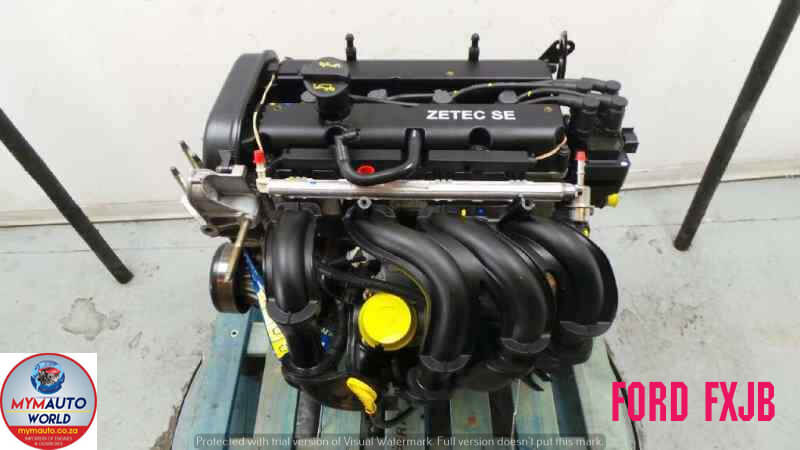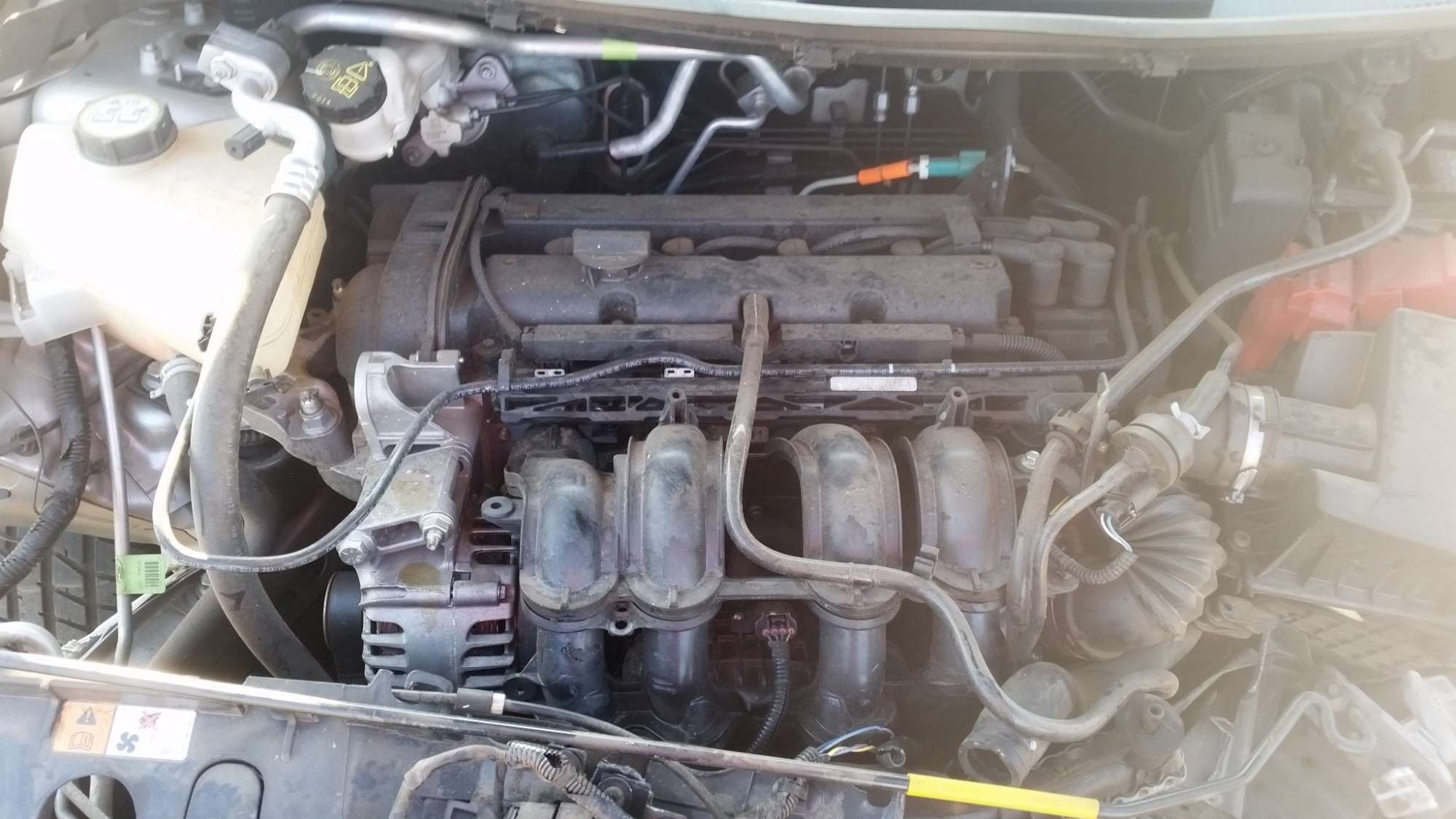Troubleshooting Ford Fiesta Engine Problems: What You Need to Know
Troubleshooting Ford Fiesta Engine Problems: What You Need to Know
Blog Article
Unlocking the Power of Engines: A Comprehensive Guide to Performance and Effectiveness
Recognizing the complex auto mechanics of engines is critical for both performance lovers and daily motorists. The solutions may redefine our technique to engine efficiency and efficiency in means that are both informing and crucial.
Comprehending Engine Essentials
What makes up the fundamental mechanics of an engine? At its core, an engine is an equipment made to convert fuel right into mechanical energy through a collection of regulated explosions or burning procedures.
The crankshaft after that changes this straight movement into rotational power, which ultimately powers the lorry. The camshaft regulates the opening and closing of the valves, regulating the consumption of air and fuel and the expulsion of exhaust gases. Additionally, the engine relies upon a thoroughly adjusted fuel-air combination, ignition system, and cooling system to make certain ideal efficiency and efficiency.
Understanding engine basics additionally involves recognizing the value of engine cycles, such as the four-stroke cycle, that includes consumption, compression, exhaust, and power strokes. Each phase is essential in ensuring the engine operates efficiently and properly. Proficiency of these essential technicians lays the groundwork for discovering a lot more complicated engine dynamics and performance metrics, vital for optimizing both power output and effectiveness.
Trick Efficiency Metrics
Key efficiency metrics are crucial for reviewing an engine's performance and power result, providing useful insights for both consumers and manufacturers. These metrics act as benchmarks for engine efficiency, enabling notified choices in manufacturing, investing in, and design.
Among the primary metrics is horsepower, which measures the engine's ability to carry out job over time. Torque, measured in pound-feet, is an additional critical statistics that shows the engine's rotational force, straight affecting acceleration and pulling ability. Gas efficiency, usually measured in miles per gallon (MPG) or liters per 100 kilometers (L/100km), evaluates exactly how properly the engine transforms fuel right into movement, influencing functional expenses and ecological factors to consider.
Furthermore, thermal performance procedures just how well an engine converts fuel energy right into valuable job, exposing understandings right into energy losses primarily with warmth. Exhaust degrees, including CO2 and NOx, are additionally critical, showing the engine's ecological impact and conformity with regulatory requirements.

Tuning Methods for Efficiency
Tuning methods play a significant duty in boosting engine effectiveness by enhancing efficiency metrics recognized in earlier conversations (ford fiesta engine). Different techniques exist to tweak an engine, each adding to improved fuel economic climate and reduced emissions
One reliable method is changing the air-fuel anchor proportion, guaranteeing the engine runs within the optimum burning routine. A leaner blend can enhance gas performance, but it should be stabilized to stop misfires or engine knock. Furthermore, reprogramming the engine management system can rectify criteria such as ignition timing, which additionally enhances efficiency while maintaining power output.
One more vital strategy includes changing the intake and exhaust systems. Upgrading to high-performance air filters and exhaust headers can reduce back stress, assisting in far better airflow. This allows the engine to breathe more openly, leading to improved burning effectiveness.
In addition, the application of innovative adjusting tools, like dyno screening, provides accurate data that makes it possible for targeted modifications. Consistently keeping an eye on these performance metrics makes certain that adjusting efforts produce the preferred performance outcomes. Collectively, these techniques not only reinforce engine performance yet also add to long-lasting sustainability in engine procedures.
Maintenance for Optimal Performance
Routine engine maintenance is necessary for attaining optimum efficiency and longevity. A properly maintained engine not just operates successfully yet likewise minimizes the risk of pricey repairs and failures. Trick elements calling for regular interest include oil, filters, belts, and ignition system.
Transforming the engine oil at suggested periods is vital, as oil lubes relocating components and avoids overheating. Replacing oil and air filters makes sure look at here that pollutants do not impair engine feature. Overlooking these components can result in lowered performance and prospective engine damage.
Furthermore, evaluating and changing worn belts and hoses is vital to avoid sudden failings. Timing belts, in certain, must be changed according to the supplier's routine to prevent disastrous engine damage.
Ignition system need to also be checked and changed as required, considering that they play a vital role in ignition and gas effectiveness.
Future Fads in Engine Innovation
Accepting developments click for info in innovation, the future of engine style is poised to transform efficiency and performance across various applications. Crossbreed and fully electrical powertrains are coming to be progressively conventional, providing reduced exhausts and boosted gas effectiveness.
Furthermore, innovations in products scientific research are bring about lighter, stronger elements that enhance engine efficiency while decreasing power consumption. Advanced manufacturing techniques, such as 3D printing, permit the development of complicated geometries that enhance air flow and thermal management, thus enhancing combustion processes.
In addition, the integration of artificial intelligence and artificial intelligence is established to change engine diagnostics and performance tuning. These technologies can analyze huge amounts of data in genuine time, enabling predictive maintenance and customized performance improvements.
Final Thought
In conclusion, unlocking the power of engines requires a comprehensive understanding of their auto mechanics and efficiency metrics. Executing effective adjusting strategies and adhering to regular maintenance practices considerably improve engine capabilities. As the vehicle landscape evolves, accepting future trends in technology, including electrification and progressed manufacturing, will be important for enhancing performance and performance. This comprehensive technique not just benefits enthusiasts however additionally adds to sustainable services in the realm of auto engineering.
In addition, the engine depends on a meticulously adjusted fuel-air mix, ignition system, and cooling down system to ensure ideal efficiency and efficiency.
Understanding engine fundamentals additionally involves recognizing the importance of engine cycles, such as the four-stroke cycle, which includes consumption, compression, power, and exhaust strokes. Proficiency of these basic mechanics lays the foundation for checking out much more intricate engine characteristics and performance metrics, important for enhancing both power output and performance.

Embracing innovations in technology, the future of engine layout is positioned to transform performance and efficiency across numerous applications.
Report this page